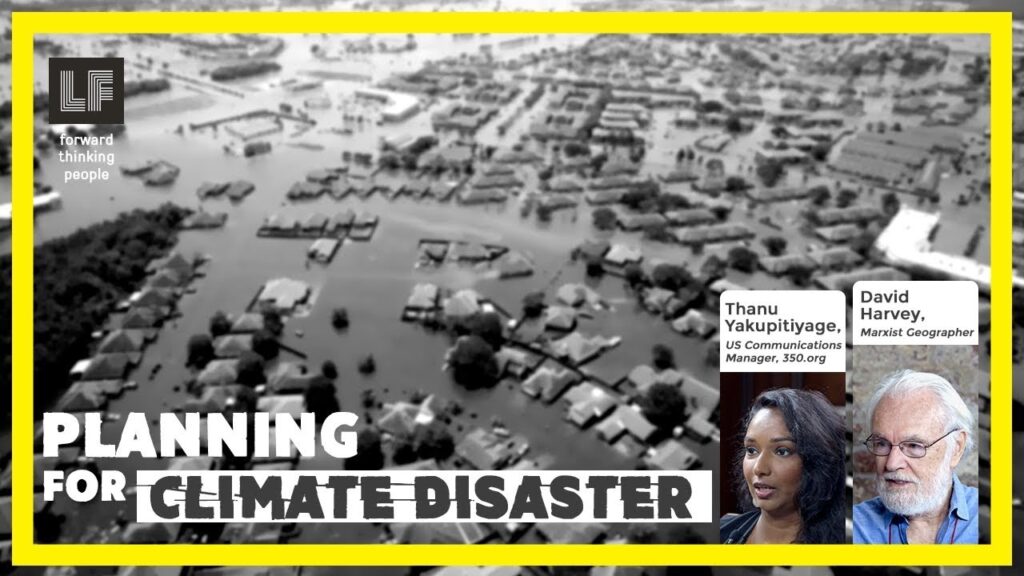
Harvey on Harvey. This week on The Laura Flanders Show, Marxist geographer David Harvey weighs in on natural and not so natural disasters and how we might organize our cities better to avoid them. And Thanu Yakupitiyage from 350.org explains why climate justice requires that we make movements that will reverse our policies on refugees.
source




Cities as investments don't care about floods and hurricanes. "If they did think about hurricanes, it would be to turn a profit," says David Harvey. Hard to disbelieve. It's good to hear such voices, as if people who work had such a thing as self-interest!
Why do so many of us live in harm's way? For most of history the way to get from one place to another was by water. Cities were established at the edge of rivers, lakes and oceans. As population increases so does the demand for land. Absent the right tax structure the land is not brought to its highest best use and regions experience sprawling development into areas where development is difficult and carries one sort or combination of higher risks. The only practical solution is to require that owners of land pay to the community an annual charge equal to the potential annual rental value of whatever land is held. This insight has been understood for a very long time (going back to Richard Cantillon or Adam Smith). As the economist Joseph Stiglitz has been trying to tell anyone who will listen, every society is today dominated by rentier interests (i.e., those who because of our system of law and taxation are able to claim a portion of the income and wealth others produce without producing anything in exchange).
Edward J. Dodson, Director
School of Cooperative Individualism
http://www.cooperative-individualism.org
Houston like many cities in predominately unregulated fre for all states was warned 50 years ago that a flood would happen and the city was poorly designed. They ignored it MONEY to be made by a few bankers